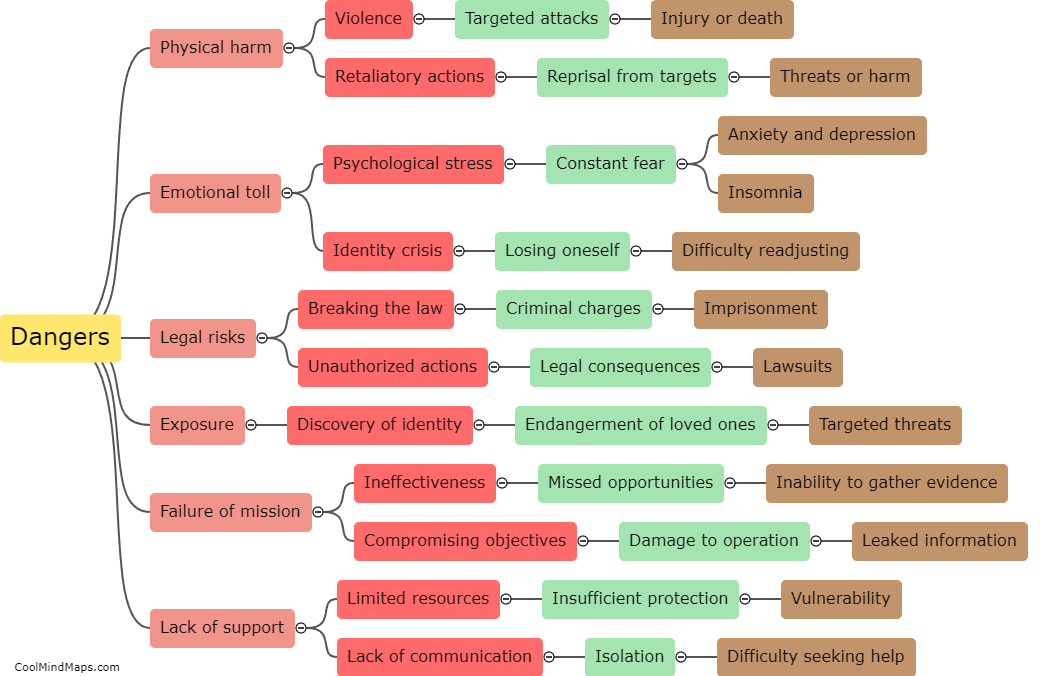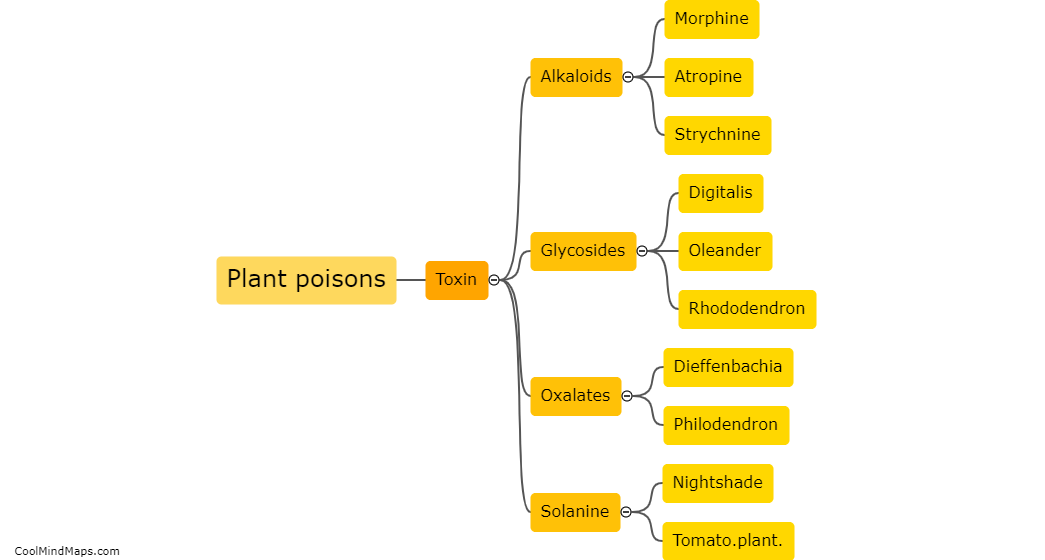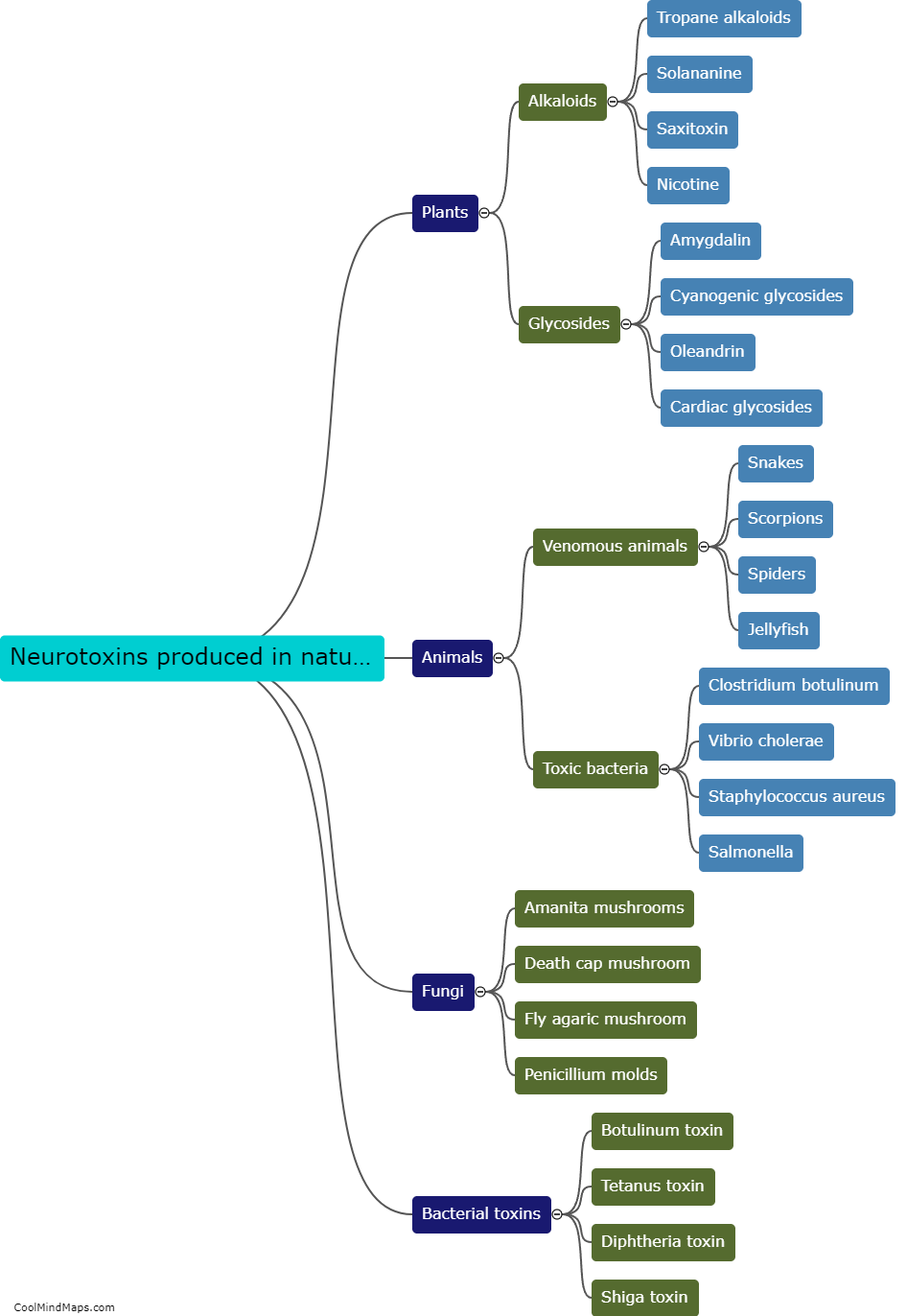What are neurotoxins?
Neurotoxins are substances that specifically target and damage the nervous system. They can be naturally occurring or man-made and have the ability to disrupt the normal functioning of neurons, leading to various neurological disorders and adverse health effects. Neurotoxins can be found in various sources such as certain plants, animals, and even industrial chemicals. Examples of well-known neurotoxins include mercury, lead, pesticides, and some venomous snake and spider bites. Exposure to these toxins can result in symptoms like tremors, seizures, cognitive impairments, and even paralysis or death. Understanding and studying neurotoxins is vital in order to ensure the safety of individuals and to develop appropriate strategies for the prevention and treatment of neurotoxicity.

This mind map was published on 20 December 2023 and has been viewed 97 times.











